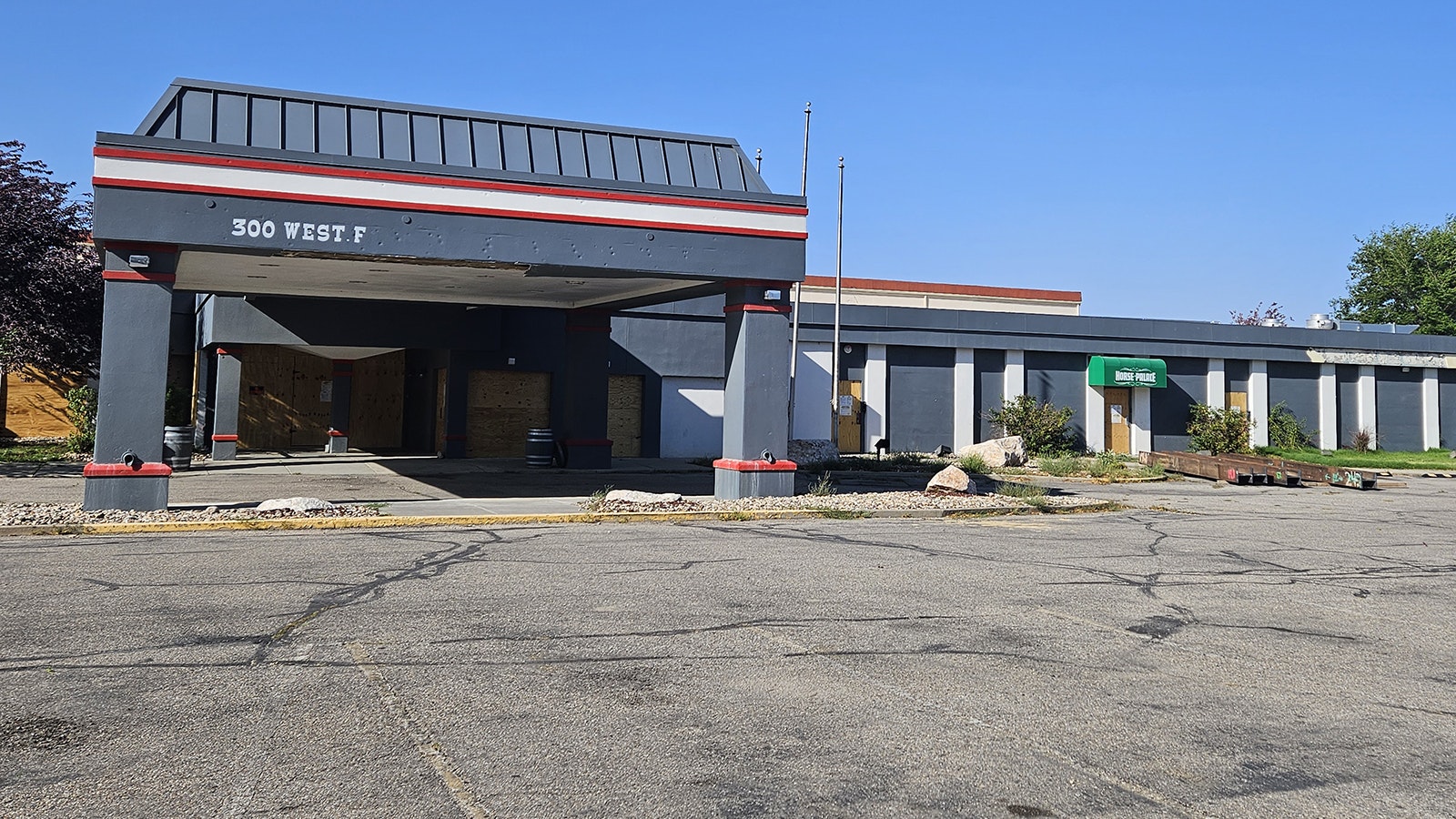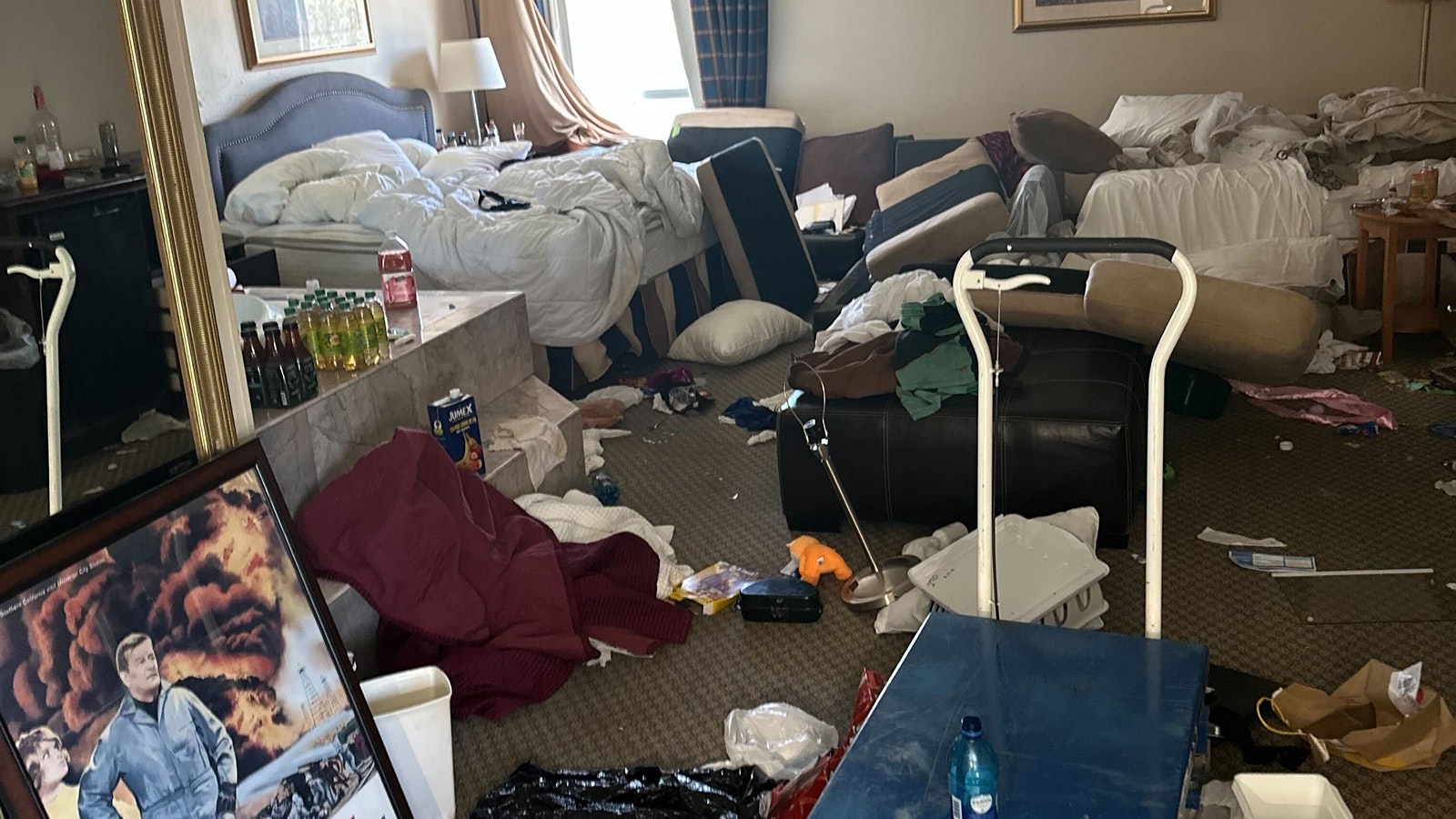Casper Mayor Bruce Knell calls his city’s growing homeless problem “a mess” and “horrible,” but the head of the city’s homeless shelter says it won’t be solved by punishing those who’ve already lost nearly everything.
A Cowboy State Daily story last week that detailed how homeless squatters trashed a vacant motel causing millions of dollars in damage, an uptick in local crime and the mayor pointing out that city crews have cleaned up 500 pounds of human feces from around town has grabbed national headlines.
Dealing with the problem requires more than a knee-jerk emotional reaction to some negative impacts, said Brad Hopkins, executive director of the Wyoming Rescue Mission shelter in Casper. It takes helping people living on the streets by diving into the complicated dynamics that cause homelessness, including other overlapping problems like drug addiction and prostitution.
He said the problems Knell cites are caused by more than just the presence of homeless people.
For example, the vacant Econo Lodge was reported as having been trashed by homeless squatters, but it also has been abused by drug addicts and used for prostitution, Hopkins said.
Although Hopkins believes homeless numbers may have slightly increased, he said the local homeless population still hasn’t reached the levels seen before the last oil and gas crash in 2017. Prior to that, he said many people would flock to the state on a wing and a prayer with the hopes of landing high-paying jobs in the oil fields.
“There are multiple dynamics and mental health and addiction are at the forefront of some of the issues,” he said.

About That Motel
Mayor Knell said the motel, which had been foreclosed on and was vacant because of flooding, was taken over by homeless people squatting at the property. He said the damage will cost millions to fix and is much worse than anything caused by water.
Hopkins said he believes mental health and drug addiction also play heavily into situations like the Econo Lodge, and that many of the state’s mentally ill are pushed out into the streets, which rarely does anything to help with their mental state.
“Addiction is a big problem and that’s really the story of what was going on in the hotel there,” he said.
Natrona County had the highest rate of meth arrests in 2022 with 146, according to a Wyoming Association of Sheriffs and Chiefs of Police report.
The Casper City Council is considering changing city code to require suspected squatters to get written consent from an owner of a property and setting a time limit for camping on private property, even for those who have permission to be there. The council also has asked city staff to draft an ordinance that would make it illegal to camp within a certain distance of the North Platte River.
Hopkins said he would generally support these changes and that squatting can be a real problem in the city.
“There should be an ability to remove people from certain properties that are doing nefarious activity,” he said.
But he also said some of the owners of low-income motels contribute to local drug problems by looking the other way when crime happen on their property so long as they are getting paid.
Hopkins toured the Econo Lodge with Knell and the city manager, and has a different take on what happened there, concluding that Casper has a serious drug problem, not a serious homeless problem.
He said the motel was a well-known haunt within the local “drug world” and that a case of absentee ownership led to the dereliction of the property. He believes previous management was running a drug and prostitution ring there, which continued to some degree even after the building was abandoned.
Hopkins said the status of the people squatting in the motel was never really identified and he’s seen much worse squatting in other locations of Casper.
Why Are They Coming?
Knell also expressed the belief that many people come to Casper because of the homeless shelter but are sent out into the streets when they can’t pass a drug or alcohol test. Although in most cases the shelter does employ these standards, Hopkins says the perception that every single homeless person on the streets of Casper has been previously kicked out of the mission is a “misnomer.”
“That’s a false syllogism,” he said. “It’s America, people choose where they want to go.”
The COMEA homeless shelter in Cheyenne has partially addressed this issue by recently opening a new part of itsfacility that doesn’t require people to pass a Breathalyzer test during the day.
Hopkins said homeless people naturally gravitate to Casper as the largest metropolitan area in the state. He said there’s also a false perception of “attractive nuisance” among some that if the shelter went away, so would the homeless problem.
“Let’s get rid of the hospital, we won’t have any more sick people in Casper type of thing,” he said with sarcasm.
Hopkins said homeless people can both leave and stay in the city fairly easily. In some ways, the size of the homeless population is seasonally based. Some come to Wyoming as tourists and get stuck in the state when they are hit with unexpected financial hardships.

Have They Increased?
On Tuesday, Casper Municipal Court Judge Cally Martinez presented a quarterly report to the council showing a rise in homelessness and other related issues in the city. She collected her data by questioning individuals arrested on criminal charges such as camping and public intoxication.
“We’ve seen a very drastic increase in homeless, increase in number of mentally ill individuals and out of the county, homeless from across the country to Casper,” she said.
Martinez said she’s also seen a significant increase in the number of homeless people being booked into the Natrona County Detention Center.
Council member Kyle Gamroth cited a recent Casper Homeless Task Force report that found the number of homeless people incarcerated doubled from 10% to 20% in one year, figures that Martinez said is accurate and possibly slightly higher.
Hopkins worries that people who are already struggling and victimized will be further abused for being homeless and automatically seen as the cause of crime because of some of the city’s discussions.
“It seems most problems such as public intoxication get blamed on the homeless, when in fact there are a variety of backgrounds at play,” he said.
There are also reports that many homeless loiter in downtown Casper. Knell said city staff have picked up around 500 pounds of human feces from around the downtown area.
Hopkins believes the jury is still out whether the homeless population downtown has increased.
“For me, it’s been a little harder to understand that because it’s like where are these homeless people at exactly?” he questioned.
His organization has set up a street outreach team to help mitigate the homeless issue in public places.
Larry Kirby owns Rialto Barber Shop in downtown Casper. While Kirby hasn’t seen an uptick in homelessness in front of his business, he has noticed an increase in homeless people in other parts of the downtown area such as around the library and at Veterans Park.
“I go by the bus stop and I see a lot of them,” he said.
Complicated Problem
Hopkins said the Wyoming Rescue Mission constantly works to get homeless off the streets of Casper and that combating the problem takes a shared effort from their organization and law enforcement.
He believes some repeat offenders should be punished with stricter sentences and that better mental health services and conservator laws are needed in the state.
The purpose of the mission, Hopkins said, is focused on those who have an ability and a desire to move forward with their lives. Of the Mission residents, 75% attain employment within two to three weeks of arriving and 65% are from Natrona County.
Cheryl Hackett, Director of Development for the mission, said suicide is a major testament to the mental health problems in Wyoming, which consistently has one of the highest rates in the nation. According to a Casper City Crime Report compiled at the end of 2020, suicide calls and mental health holds increased in the city from 2017-2020, but completed suicides stayed about flat.
“My recommendation is that cities wishing to change their communities look at ways to provide mental health services and alcohol/addiction treatment services, all of which we are offering for life-transforming transformation at the Wyoming Rescue Mission for anyone who walks through our doors,” Hackett said.
Leo Wolfson can be reached at leo@cowboystatedaily.com.





